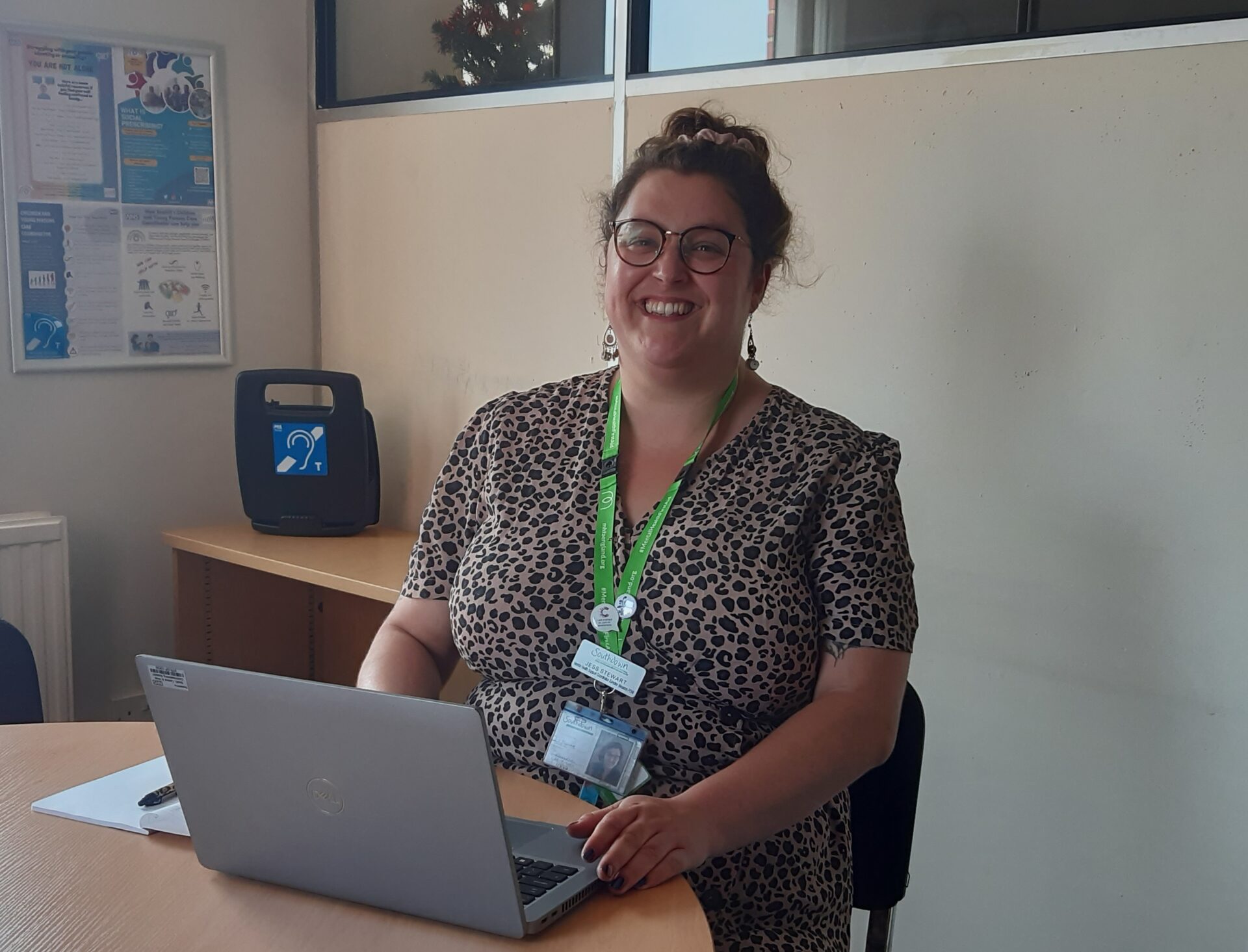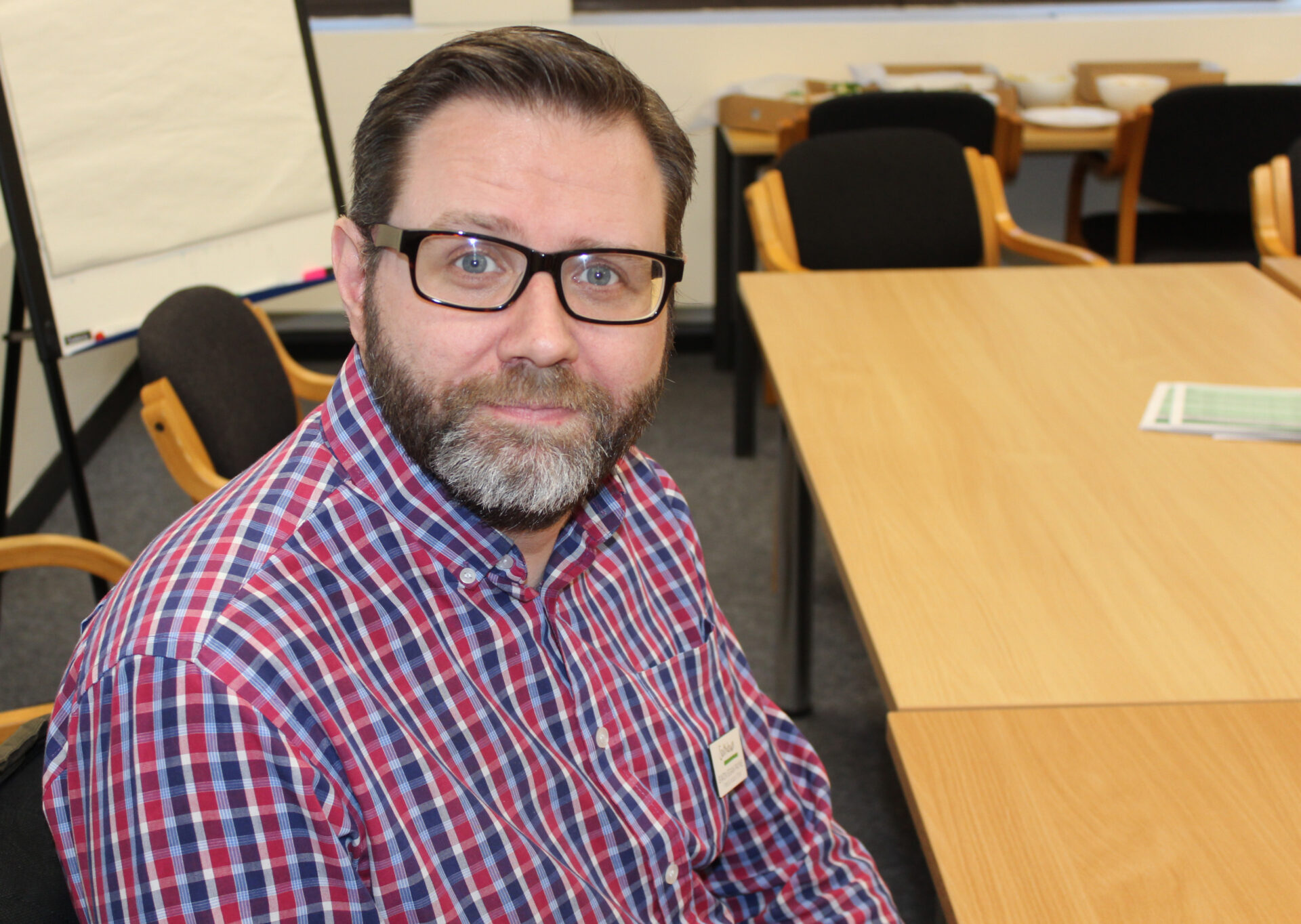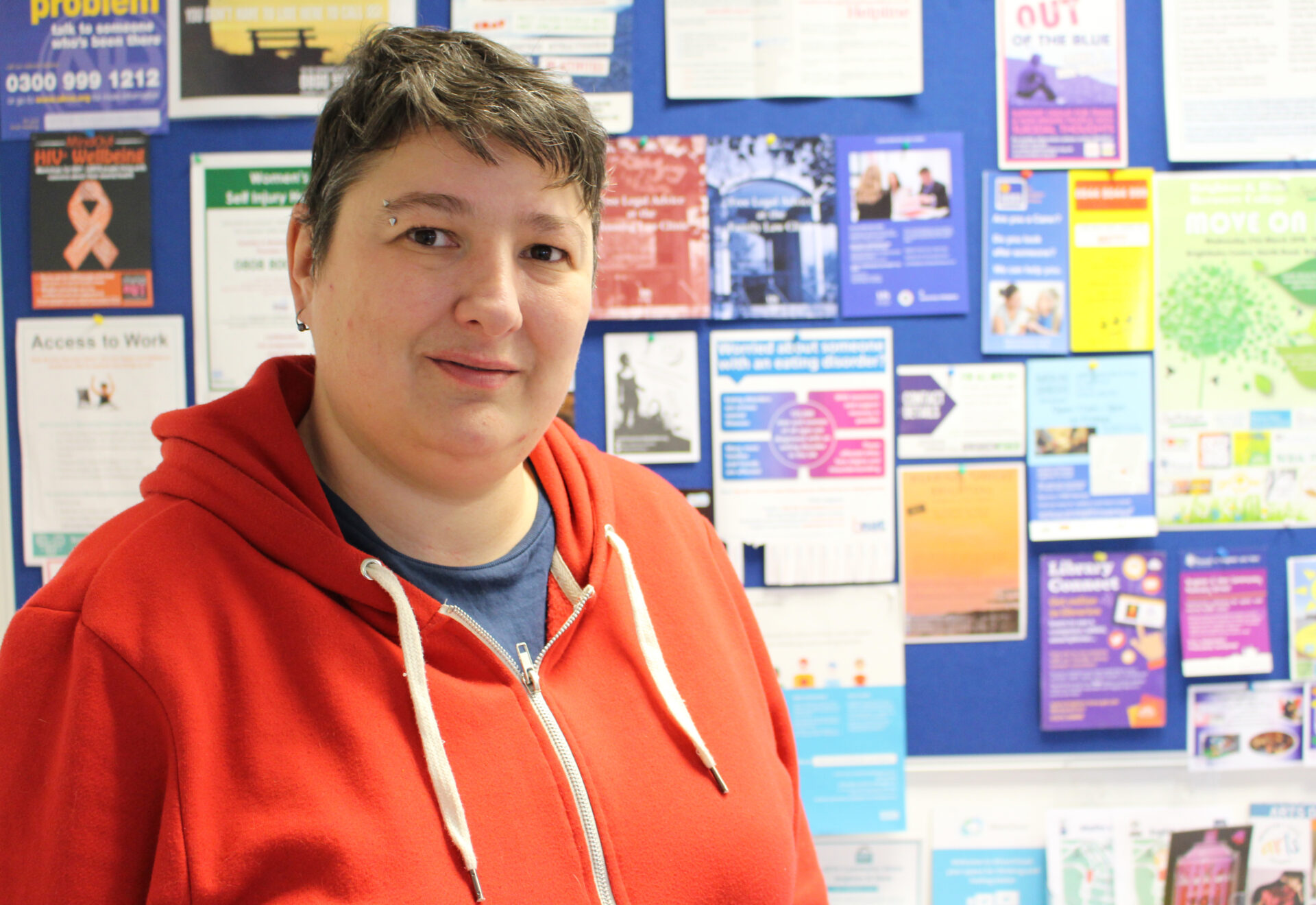“Often an individual’s mental health needs require more than just a prescription”
My name is Jess, I am a Mental Health Support Coordinator for the Emotional Wellbeing Service (EWS).
This service provides mental health support to patients from GP surgeries in Brighton and East Sussex. It is a partnership between Southdown, Sussex Partnership Foundation Trust (SPFT), and local Primary Care Networks (PCNs).
I started working in the Greater Wealden PCN in February 2022 and then moved to Bexhill PCN in December 2022. I am integrated in this role – currently, I work from home on Mondays offering remote support to patients – some still prefer phone support rather than meeting face-to-face. On Tuesdays and Thursdays, I am in the PCN office where there is a space I can see patients, and Wednesdays are our ‘Southdown Days’ where we have team meetings, reflective practice, supervision, and complex case discussions. On Fridays, I am based in a GP surgery.
Being co-located and integrated makes it easier to communicate with health professionals, which means better support for the patients and staff. It also means we can share knowledge and experience such as patient history, support options, and referral pathways. Other benefits include feeling part of more than one team and being able to attend practice learning days, team events etc. as well as having opportunities to reflect and have clinical supervision outside of Southdown.
Patients are referred to the Emotional Wellbeing Service by surgery staff like GPs, reception staff, nurses, and healthcare assistants. My main responsibilities include triaging referrals that come to the mental health team at the PCN, establishing if the patient is suitable for the service, or if another service would be more appropriate, such as social prescribing.
I also provide trauma-informed support to patients who are struggling with their mental health. Support is personalised so varies on the individual and their needs, but it usually involves providing a safe space to discuss how they are feeling, what their goals are, and how they can be achieved. This may involve signposting to other services and organisations, supporting with referrals, and liaising with other professionals. Sometimes we will complete WRAPs or Safety Plans with patients.
Other responsibilities include supporting patients to overcome barriers to access support. For example, facilitating communication and taking into account any additional needs a patient may have such as a language barrier or neurodiversity, and discussing complex cases with the Mental Health Practitioner (MHP) who is able to offer support and provide some brief intervention work.
Patients are most likely to be referred to the Emotional Wellbeing Service if they are unsure of how or where to access support for their mental health or if they don’t meet the requirements for Health in Mind or the Assessment and Treatment Service. Many of our patients are living with depression or anxiety, substance misuse, bereavement, stress, complex emotional needs, a relapse of their mental health, or a physical health and / or social situation that is impacting on their mental health such as a flare up of a long-term condition, relationship stress, or financial stress.
I support patients in a number of ways. For example, by arranging the best way to communicate – either face-to-face in the GP practice, or by phone or video call appointments; and by providing personalised one-to-one, short-term support, starting with an initial meeting to establish their needs and goals.
I support them by understanding and discussing how wider social circumstances and other problems can contribute to their mental health challenges, such as social isolation, finances, housing and work-related stress; and I assist with referrals to community services specific to their personal needs, including therapy and counselling options.
A direct mental health intervention role like mine means that patients can access support more easily. We have more time and availability than GPs and often an individual’s mental health needs require more than just a prescription. People want to feel heard and we give them a space for that. We provide personalised, non-clinical, non-judgmental support, and can help by speaking with other healthcare professionals.
One of the benefits of Primary Care Networks (PCN) adopting a model like this is that it relieves some of the stress on GP surgeries where patients need appointments for non-clinical issues. The model also allows for a more holistic approach to healthcare, collaborative multi-disciplinary team working, and flexible support options for patients.
There have been some challenges with integrated working. When I started in the role, Key Performance Indicators (KPIs) were being developed. These are much clearer to the team now and are useful for guidance around how we support patients. Each surgery and PCN also has their own ways of doing things, their own culture and expectations, which can be tricky to navigate at times. For example, if a patient needs a medication review or sick note, there’s a different process of requesting that in each surgery. I’ve also found that different networks use different computer systems.
There are lots of great things about my job. I have a supportive line manager and colleagues, and I’m meeting and working with different professions and organisations every day. I’m seeing a really broad range of people with varying needs who are trusting me enough to be vulnerable and share their stories with me. It’s amazing to see people become more confident and able to advocate for themselves as they make progress in their journeys!
The Emotional Wellbeing Service is for adult patients with mental health needs who use primary care for support, but are not currently under the care of community mental health services and do not meet the criteria for services such as Assessment and Treatment Services (ATS) and NHS Talking Therapies. Our Mental Health Support Coordinators provide focused support in order to ease the additional demand for GPs and clinicians.
This service provides mental health support to patients from GP surgeries in Brighton and East Sussex. It is a partnership between Southdown, Sussex Partnership Foundation Trust (SPFT), and local Primary Care Networks (PCNs).



